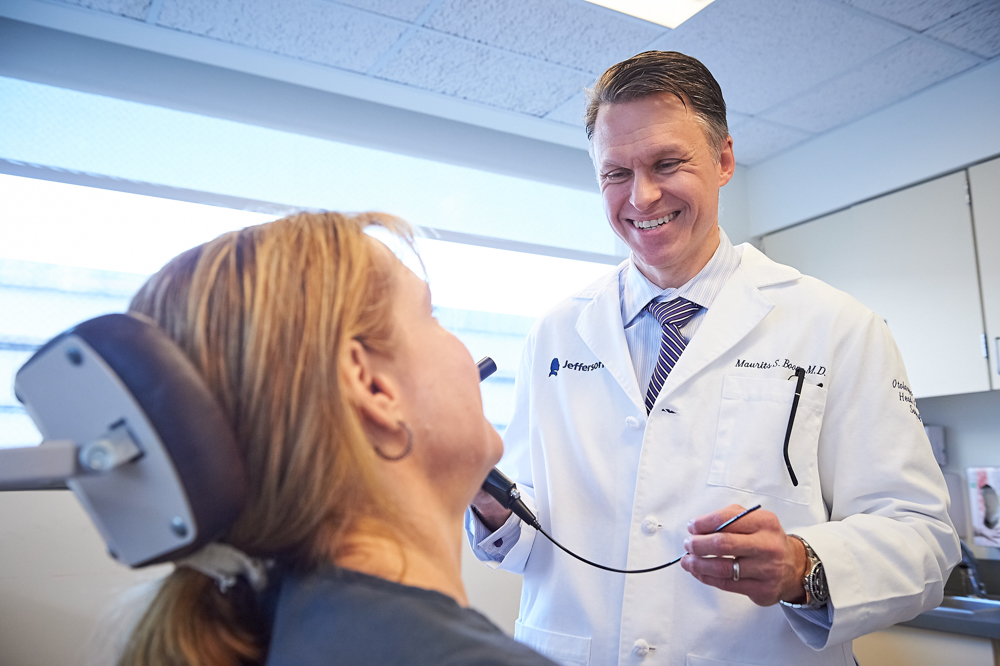Top Reasons to See an ENT for Chronic Health Concerns
Wiki Article
Checking out the Area of Otolaryngology: What to Anticipate When You Get In Touch With an ENT
Otolaryngology, generally referred to as ENT, encompasses the diagnosis and treatment of ear, nose, and throat disorders. For those experiencing relevant concerns, getting in touch with an ENT professional can offer quality and relief. Comprehending what to anticipate throughout such appointments is crucial for effective interaction and care. This introduction will detail vital facets of the ENT experience, consisting of typical factors for check outs and the procedures associated with diagnosis and therapy.
Understanding Otolaryngology: An Introduction
Otolaryngology, typically referred to as ENT (Ear, throat, and nose) medicine, is a specialized branch of medicine that concentrates on the diagnosis and therapy of conditions impacting these crucial areas of the human body. This field includes a variety of conditions, consisting of those associated to hearing, equilibrium, breathing function, and speech. Otolaryngologists are trained to take care of both medical and medical therapies, using innovative methods and modern technologies. Their know-how extends beyond traditional conditions, resolving issues such as allergic reactions, sinus infections, and hearing loss. Furthermore, they play a critical duty in the monitoring of head and neck cancers, offering detailed treatment tailored to specific client demands. Generally, otolaryngology stays vital for keeping health and lifestyle in afflicted people.Usual Factors to See an ENT Professional
Numerous individuals seek the knowledge of an ENT professional for a range of factors, showing the diverse nature of problems that affect the nose, ear, and throat. Common problems include persistent sinusitis, which commonly causes persistent nasal congestion and face pain. Allergic reactions and their linked signs and symptoms, such as itching and sneezing, also motivate check outs to these experts (Voice). Hearing loss, whether steady or sudden, is one more significant reason for consultation. Additionally, people may seek analysis for throat problems, including relentless hoarseness or swallowing problems. Rest apnea, identified by disturbed breathing throughout sleep, is frequently addressed by ENT professionals as well. Each of these conditions highlights the relevance of specialized care in managing complicated ENT-related health and wellness problems
Preparing for Your ENT Visit
When getting ready for an ENT visit, it is important to gather pertinent details and think about any certain problems. Individuals ought to compile a thorough medical history, including previous ear, nose, or throat concerns, surgeries, and existing medicines. Recording signs and symptoms-- such as frequency, period, and extent-- can provide beneficial insights for the ENT specialist. Furthermore, people must prepare a list of concerns they wish to ask, ensuring that all issues are addressed throughout the browse through. Bringing along any appropriate medical records or examination results can better help the ENT in recognizing the patient's condition. Patients need to validate their visit details, consisting of day, time, and area, to decrease any kind of final complication. Appropriate preparation can improve the effectiveness of the assessment and lead to much better outcomes.What to Anticipate During the Examination
As the assessment starts, the client can anticipate to take part in an extensive discussion with the ENT specialist concerning their signs and symptoms and medical background. The specialist will ask about the duration, regularity, and severity of signs and symptoms such as hearing loss, nasal blockage, or aching throat. In addition, the individual's previous clinical conditions, medications, and any type of appropriate family members history will be assessed, assisting the professional in forming Otorrinolaringologia a full understanding of the client's wellness. The ENT may additionally inquire about way of living variables, such as direct exposure to irritants or allergens. This open discussion develops a foundation for the appointment, ensuring that the person's worries are resolved and setting the stage for any type of required analyses or recommendations for treatment.
Analysis Tests and Treatments in Otolaryngology
A series of analysis examinations and treatments are essential in otolaryngology to properly evaluate and identify problems affecting the ear, nose, and throat. Typical tests consist of audiometry, which measures hearing feature, and tympanometry, analyzing middle ear stress. Nasal endoscopy permits visualization of the nasal flows and sinuses, while laryngoscopy takes a look at the throat and vocal cables. Imaging strategies, such as CT scans and MRIs, offer comprehensive views of head and neck structures. Allergic reaction testing might likewise be performed to determine triggers for sinus or breathing problems. These analysis tools enable ENT experts to develop a complete understanding of people' conditions, ensuring customized and reliable monitoring strategies. Proper diagnosis is important for successful treatment end results in otolaryngology.Therapy Choices Offered by ENT Specialists
ENT experts use a variety of therapy choices tailored to deal with specific conditions affecting the ear, nose, and throat. These therapies vary from conservative techniques, such as medicine and lifestyle modifications, to more invasive procedures. For circumstances, allergic reactions might be managed with antihistamines or immunotherapy, while chronic sinusitis could require nasal corticosteroids or sinus surgical treatment. For hearing loss, ENT specialists typically advise listening device or medical interventions like cochlear implants. In instances of throat disorders, choices can consist of speech treatment or procedures to get rid of blockages. Additionally, they may provide support for handling rest apnea, consisting of using CPAP devices or medical treatments. Overall, the goal is to boost clients' high quality of life through customized care and effective therapy methods.When to Seek Follow-Up Treatment With an ENT
Recognizing when to look for follow-up care with an ENT specialist is crucial for managing recurring signs and symptoms or complications connected to throat, ear, and nose problems. People must think about setting up a follow-up appointment if signs linger regardless of first treatment, such as persistent ear discomfort, nasal congestion, or throat pain. Changes in hearing, balance issues, or unusual nasal discharge might additionally call for more assessment. In addition, if a client experiences negative effects from recommended medicines or has undertaken a surgery, follow-up treatment is necessary to check recovery and address any issues. Prompt examinations can ensure reliable administration of conditions, protect against prospective problems, and supply comfort relating to one's wellness. Seeking follow-up care promotes aggressive wellness administration in otolaryngology.Frequently Asked Concerns

What Certifications Should I Seek in an ENT Specialist?
When seeking an ENT professional, one ought to search for board accreditation, relevant experience, and solid person reviews. Additionally, efficient communication abilities and a caring approach can significantly boost the general treatment experience.Just how Do I Select the Right ENT for My Requirements?
Picking the right ENT expert entails examining their qualifications, experience, and client testimonials (Sinus). It is important to contemplate their interaction style and method to treatment, ensuring they align with the person's details wellness demands and choicesAre There Any Type Of Risks Connected With ENT Procedures?
The risks connected with ENT procedures may include infection, bleeding, anesthetic complications, and possible damage to bordering structures. Patients should talk about these risks with their medical professional to comprehend private concerns and warranty educated choices.How Can I Manage Stress And Anxiety Prior To My ENT Appointment?
To take care of stress and anxiety prior to a visit, people can practice deep breathing exercises, picture favorable end results, prepare inquiries in advance, and seek support from close friends or family, promoting a sense of peace of mind and calmness.What Should I Do if I Experience Adverse Effects From Treatment?
If adverse effects from treatment occur, the person needs to without delay report them to their medical care provider. Modifications to therapy or extra treatments may be essential to guarantee safety and security and performance in managing their problem - Otorrinolaringologia. As the consultation begins, the individual can expect to involve in an extensive conversation with the ENT professional concerning their signs and symptoms and medical background. These analysis tools enable ENT specialists to create a comprehensive understanding of patients' conditions, making sure tailored and reliable management strategies. ENT experts provide a range of therapy alternatives tailored to deal with details problems influencing the nose, ear, and throat. When looking for an ENT specialist, one ought to look for board certification, appropriate experience, and solid client reviews. Picking the ideal ENT specialist entails examining their certifications, experience, and person evaluationsReport this wiki page